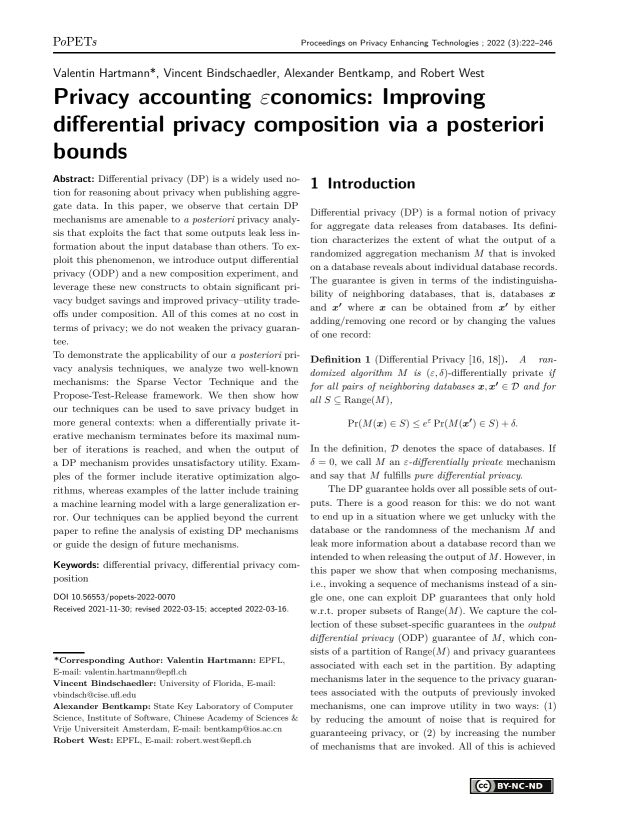Privacy accounting εconomics: Improving differential privacy composition via a posteriori bounds
Authors: Valentin Hartmann (EPFL), Vincent Bindschaedler (University of Florida), Alexander Bentkamp (State Key Laboratory of Computer Science, Institute of Software, Chinese Academy of Sciences & Vrije Universiteit Amsterdam), Robert West (EPFL)
Volume: 2022
Issue: 3
Pages: 222–246
DOI: https://doi.org/10.56553/popets-2022-0070
Abstract: Differential privacy (DP) is a widely used notion for reasoning about privacy when publishing aggregate data. In this paper, we observe that certain DP mechanisms are amenable to a posteriori privacy analysis that exploits the fact that some outputs leak less information about the input database than others. To exploit this phenomenon, we introduce output differential privacy (ODP) and a new composition experiment, and leverage these new constructs to obtain significant privacy budget savings and improved privacy–utility tradeoffs under composition. All of this comes at no cost in terms of privacy; we do not weaken the privacy guarantee. To demonstrate the applicability of our a posteriori privacy analysis techniques, we analyze two well-known mechanisms: the Sparse Vector Technique and the Propose-Test-Release framework. We then show how our techniques can be used to save privacy budget in more general contexts: when a differentially private iterative mechanism terminates before its maximal number of iterations is reached, and when the output of a DP mechanism provides unsatisfactory utility. Examples of the former include iterative optimization algorithms, whereas examples of the latter include training a machine learning model with a large generalization error. Our techniques can be applied beyond the current paper to refine the analysis of existing DP mechanisms or guide the design of future mechanisms.
Keywords: differential privacy, differential privacy composition
Copyright in PoPETs articles are held by their authors. This article is published under a Creative Commons Attribution-NonCommercial-NoDerivs 3.0 license.


